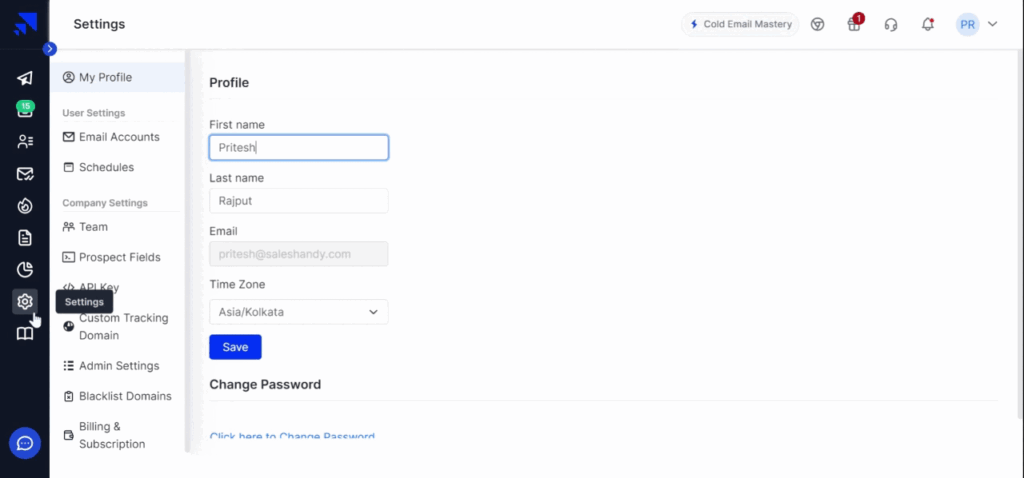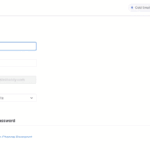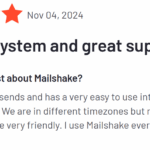Saleshandy vs GetSales: Key Differences Explained

Saleshandy vs GetSales: Key Differences Explained
In the ever-evolving landscape of digital marketing and sales, the tools that businesses utilize to enhance their outreach efforts play a crucial role in determining their success. Among the myriad of options available, Saleshandy vs GetSales are two prominent email outreach tools that have garnered attention for their unique features and functionalities. While both platforms aim to streamline the email outreach process, they cater to different user needs and preferences. This article delves into a comprehensive comparison of these two tools, exploring their features, target audiences, pricing structures, and ultimately helping you decide which one might be the best fit for your business.
Overview of Saleshandy
Saleshandy is an advanced email outreach tool designed to empower sales and marketing teams with a suite of features that enhance email deliverability, engagement tracking, and overall campaign management. It is particularly well-suited for businesses that require a robust set of tools to manage their email campaigns effectively. With its user-friendly interface and powerful functionalities, Saleshandy has become a go-to solution for many organizations looking to optimize their outreach efforts.
Features and Functionalities
One of the standout features of Saleshandy is its advanced email tracking capabilities. Users can monitor when their emails are opened, clicked, and replied to, providing valuable insights into recipient engagement. This feature allows sales teams to tailor their follow-up strategies based on real-time data, increasing the likelihood of successful conversions. Additionally, Saleshandy offers a built-in email finder, which helps users identify and verify email addresses, saving time and effort in the lead generation process.
Another notable functionality is the email writing assistance feature, which provides users with suggestions and templates to craft compelling emails. This is particularly beneficial for those who may struggle with writing persuasive content. Furthermore, Saleshandy allows users to create lists and tags for better organization of contacts, making it easier to segment audiences and tailor messages accordingly.
Collaboration is also a key aspect of Saleshandy, as it supports unlimited teams, enabling multiple users to work together seamlessly. This is especially advantageous for larger organizations where teamwork and communication are essential for success. Overall, Saleshandy offers a comprehensive suite of features that cater to the diverse needs of sales and marketing professionals.
Target Audience
The target audience for Saleshandy primarily includes sales teams, marketing professionals, and businesses of all sizes that require a sophisticated email outreach tool. Its extensive features make it particularly appealing to larger organizations with dedicated sales teams that need advanced tracking and collaboration capabilities. However, small businesses and startups can also benefit from its affordable pricing plans, making it accessible to a wider range of users.
Related Topic: Saleshandy vs Emelia: Key Differences Explained
Saleshandy vs Emelia: Key Differences ExplainedOverview of GetSales
In contrast to Saleshandy, GetSales is an email outreach tool that emphasizes simplicity and ease of use. It is designed for users who may not require extensive features or who are new to email outreach. GetSales focuses on streamlining the outreach process, providing a user-friendly interface that allows users to set up and manage their campaigns quickly and efficiently.
Features and Functionalities
GetSales offers a range of basic features that cater to users looking for a straightforward solution. While it may not provide the advanced functionalities found in Saleshandy, GetSales does include essential tools such as basic engagement tracking and email verification. Users can monitor email opens and clicks, allowing them to gauge recipient interest and adjust their outreach strategies accordingly.
One of the key advantages of GetSales is its quick setup process. Users can easily create and launch email campaigns without the need for extensive training or technical expertise. This makes it an ideal choice for small businesses or individuals who may be new to email outreach and are looking for a hassle-free solution.
However, it is important to note that GetSales lacks some of the more advanced tools offered by Saleshandy, such as A/B testing and detailed prospect outcomes. While it provides the essentials for email outreach, users seeking a more comprehensive solution may find themselves limited by the functionalities available in GetSales.
Target Audience
The target audience for GetSales primarily includes small businesses, freelancers, and individuals who prioritize simplicity and ease of use in their email outreach efforts. It is particularly suitable for users who may not have extensive experience with email marketing tools and are looking for a straightforward solution to manage their campaigns. While GetSales may not cater to larger organizations with complex needs, it serves as an excellent entry point for those new to email outreach.
Comparative Analysis
When comparing Saleshandy vs GetSales, it is essential to consider the key differences in their features, functionalities, and overall user experience. While both tools serve the purpose of enhancing email outreach, they do so in distinct ways that cater to different user needs.
Related Topic: Saleshandy vs Instantly vs Emailchaser: Which is Best?
Saleshandy vs Instantly vs Emailchaser: Which is Best?Feature Comparison Table
| Feature | Saleshandy | GetSales |
|---|---|---|
| Email Tracking | Advanced tracking with opens, clicks, and replies | Basic tracking with opens and clicks |
| Email Finder | Built-in email finder | Not available |
| Email Writing Assistance | Yes, with templates and suggestions | No |
| Collaboration Features | Supports unlimited teams | Limited collaboration features |
| A/B Testing | Available | Not available |
| Ease of Use | User-friendly but feature-rich | Very user-friendly and simple |
This comparison table highlights the significant differences between Saleshandy and GetSales, showcasing how each tool caters to different user needs. While Saleshandy offers a comprehensive suite of features that enhance email outreach, GetSales focuses on providing a simple and straightforward solution for users who may not require extensive capabilities.
Pricing and Plans
Pricing is a crucial factor to consider when evaluating Saleshandy vs GetSales, as it can significantly impact a user's decision on which tool to choose. Both platforms offer different pricing structures that cater to various business sizes and budgets.
Saleshandy Pricing Structure
Saleshandy is known for its affordable pricing plans that cater to a wide range of users, from startups to larger organizations. The platform typically offers multiple tiers of pricing, allowing users to choose a plan that best fits their needs. The pricing structure often includes a free trial period, enabling users to test the features before committing to a paid plan. Saleshandy’s plans may include features such as advanced tracking, email finder, and collaboration tools, making it a cost-effective solution for businesses looking to enhance their email outreach efforts.
GetSales Pricing Structure
On the other hand, GetSales may have a different pricing structure that could be less flexible for users with budget constraints. While it may offer competitive pricing for its basic features, users seeking advanced functionalities may find that the costs can add up quickly. GetSales typically provides a straightforward pricing model, but it is essential for potential users to carefully evaluate the features included in each plan to ensure they are getting the best value for their investment.
Conclusion
In conclusion, the choice between Saleshandy vs GetSales ultimately depends on the specific needs and preferences of the user. Saleshandy stands out with its extensive features, advanced tracking capabilities, and collaborative tools, making it a better choice for users looking for a comprehensive solution to manage their email outreach efforts. Its robust functionalities cater to larger organizations and sales teams that require sophisticated tools to optimize their campaigns.
Best Use Cases for Saleshandy
Saleshandy is best suited for businesses that require advanced email tracking, collaboration features, and tools for crafting compelling emails. It is ideal for sales teams that need to monitor recipient engagement closely and tailor their follow-up strategies accordingly. Additionally, organizations with larger teams that require seamless collaboration will benefit from Saleshandy’s unlimited team support and organizational features.
Related Topic: Saleshandy vs Instantly vs Smartlead: Key Differences Explained
Saleshandy vs Instantly vs Smartlead: Key Differences ExplainedBest Use Cases for GetSales
Conversely, GetSales is an excellent choice for small businesses, freelancers, and individuals who prioritize simplicity and ease of use in their email outreach efforts. It is particularly suitable for users who may be new to email marketing and are looking for a straightforward solution to manage their campaigns without the need for extensive training or technical expertise. GetSales serves as a great entry point for those looking to dip their toes into the world of email outreach without overwhelming themselves with complex features.
Ultimately, both Saleshandy and GetSales have their unique strengths and weaknesses, and understanding these differences will help users make an informed decision based on their specific needs and goals in the realm of email outreach.
If you want to discover other articles similar to Saleshandy vs GetSales: Key Differences Explained, you can visit the Tools and Reviews category.

Related Posts: